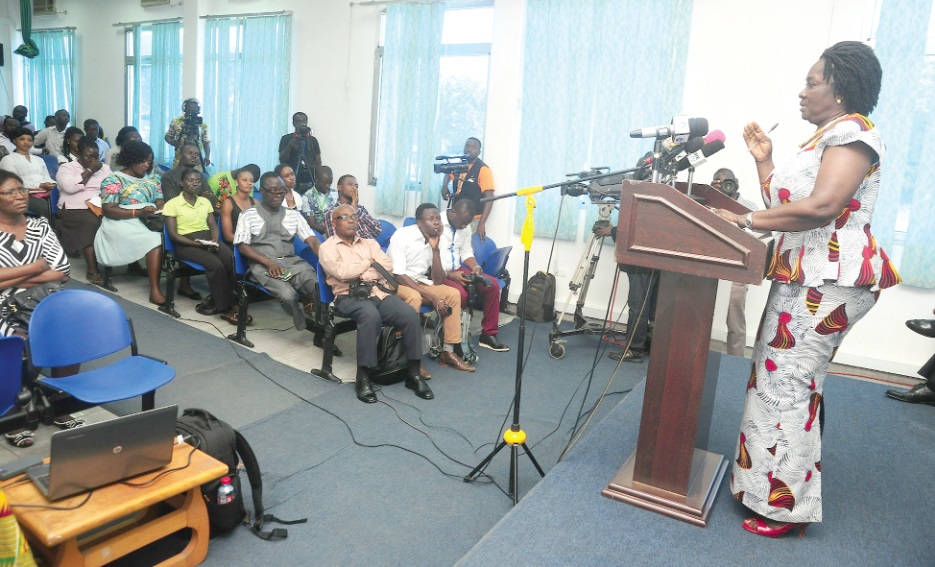
Tax exemptions for private tertiary institutions on educational materials
The government has granted tax exemptions on educational materials for private tertiary institutions. Additionally, the government has expanded the Students Loan Trust to cover private tertiary institution, and so far more than 6,000 private tertiary students have benefited from the scheme.
Advertisement
The Minister of Education, Professor Naana Jane Opoku-Agyemang, who announced these when she took her turn at the meet-the-press series, explained that the decisions were part of policy initiatives by the government to include the private sector in the provision of tertiary education.
Focus of the presentation
Her two-hour presentation was about education management and administration, basic education, secondary education, non-formal education, inclusive education and tertiary education.
Prof. Opoku-Agyemang said the government believed that education, including tertiary education, was a shared responsibility, adding that the government had provided the enabling environment for private sector participation in tertiary education.
She said other measures put in place by the government were the allocation of vehicles to some selected private tertiary institutions and also the provision of scholarships to students in private tertiary institutions.
Steps by government to ensure compliance
The minister, who was supported by her Deputy Minister in charge of Pre-Tertiary, Mr Alex Kyeremeh, announced that the National Accreditation Board had taken steps to ensure that programmes ran by the institutions met the minimum standard required.
“Furthermore, the National Council for Tertiary Education (NCTE), in liaison with the National Accreditation Board, has produced a national policy on siting of tertiary education institutions and mounting of new programmes to among other things, regulate the number of private tertiary institutions,” she announced.
Teacher licence
On the decision to license teachers before they are allowed to teach in the classroom, Prof. Opoku-Agyemang justified the decision, explaining that the directive was not new, “We are only implementing an act passed by the Parliament of Ghana, Act 2008 (Act 778).”
Answering questions from journalists after her presentation, she said what the ministry was doing was in conjunction with the teachers at the centre, “to let them tell us how they should do it.”
She said the ministry was shying away from “doing many things for, rather we have been trying to do many things with. Even the E-Block, we contacted students”.
Teachers for EC job
Commenting on whether the ministry would allow teachers to be used as election officials by the Electoral Commission, Prof. Opoku-Agyemang said the ministry was aware that in the past, teachers were called upon to participate in very important national assignments such as the elections.
She, however, explained that that would not be a problem as long as it would not conflict with their primary responsibility.
“If they are going to abandon the classroom and go, we will not accept that. Because, the first day in school is as important as the last day,” she stressed.
Drunken teachers
Reacting to allegations of drunken teachers, she said the issue was a social problem and not just that of teachers and nobody should make it look as though it was only teachers.
She, however, said the education sector had a code of conduct, “And we enforce it strictly.”



